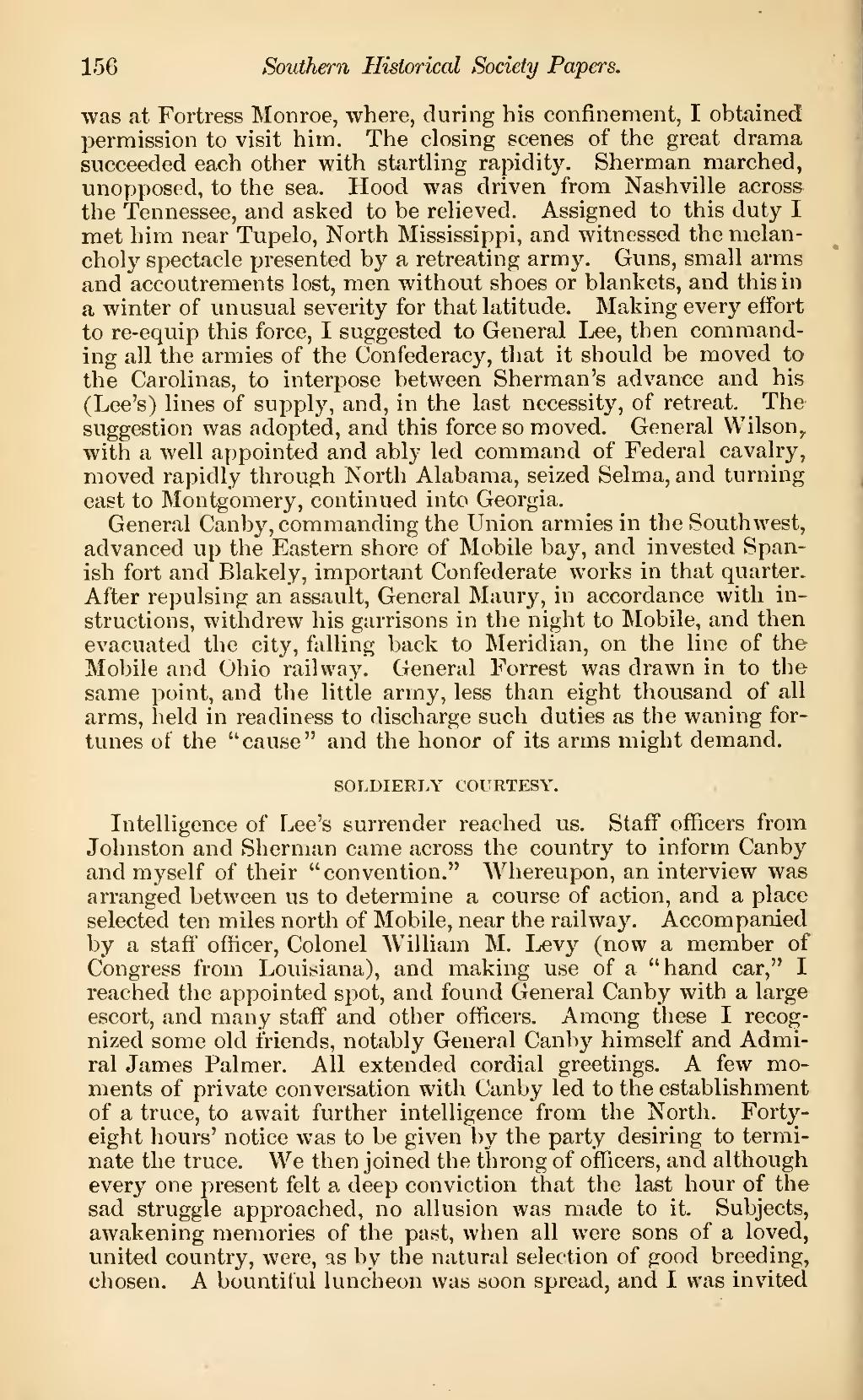was at Fortress Monroe, where, during his confinement, I obtained permission to visit him. The closing scenes of the great drama succeeded each other with startling rapidity. Sherman marched, unopposed, to the sea. Hood was driven from Nashville across the Tennessee, and asked to be relieved. Assigned to this duty I met him near Tupelo, North Mississippi, and witnessed the melancholy spectacle presented by a retreating army. Guns, small arms and accoutrements lost, men without shoes or blankets, and this in a winter of unusual severity for that latitude. Making every effort to re-equip this force, I suggested to General Lee, then commanding all the armies of the Confederacy, that it should be moved to the Carolinas, to interpose between Sherman's advance and his (Lee's) lines of supply, and, in the last necessity, of retreat. The suggestion was adopted, and this force so moved. General Wilson, with a well appointed and ably led command of Federal cavalry, moved rapidly through North Alabama, seized Selma, and turning east to Montgomery, continued into Georgia.
General Canby, commanding the Union armies in the Southwest, advanced up the Eastern shore of Mobile bay, and invested Spanish fort and Blakely, important Confederate works in that quarter. After repulsing an assault, General Maury, in accordance with instructions, withdrew his garrisons in the night to Mobile, and then evacuated the city, falling back to Meridian, on the line of the Mobile and Ohio railway. General Forrest was drawn in to the same point, and the little army, less than eight thousand of all arms, held in readiness to discharge such duties as the waning fortunes of the "cause" and the honor of its arms might demand.
SOLDIERLY COURTESY.
Intelligence of Lee's surrender reached us. Staff officers from Johnston and Sherman came across the country to inform Canby and myself of their "convention." Whereupon, an interview was arranged between us to determine a course of action, and a place selected ten miles north of Mobile, near the railway. Accompanied by a staff officer, Colonel William M. Levy (now a member of Congress from Louisiana), and making use of a "hand car," I reached the appointed spot, and found General Canby with a large escort, and many staff and other officers. Among these I recognized some old friends, notably General Canby himself and Admiral James Palmer. All extended cordial greetings. A few moments of private conversation with Canby led to the establishment of a truce, to await further intelligence from the North. Forty-eight hours' notice was to be given by the party desiring to terminate the truce. We then joined the throng of officers, and although every one present felt a deep conviction that the last hour of the sad struggle approached, no allusion was made to it. Subjects, awakening memories of the past, when all were sons of a loved, united country, were, as by the natural selection of good breeding, chosen. A bountiful luncheon was soon spread, and I was invited
